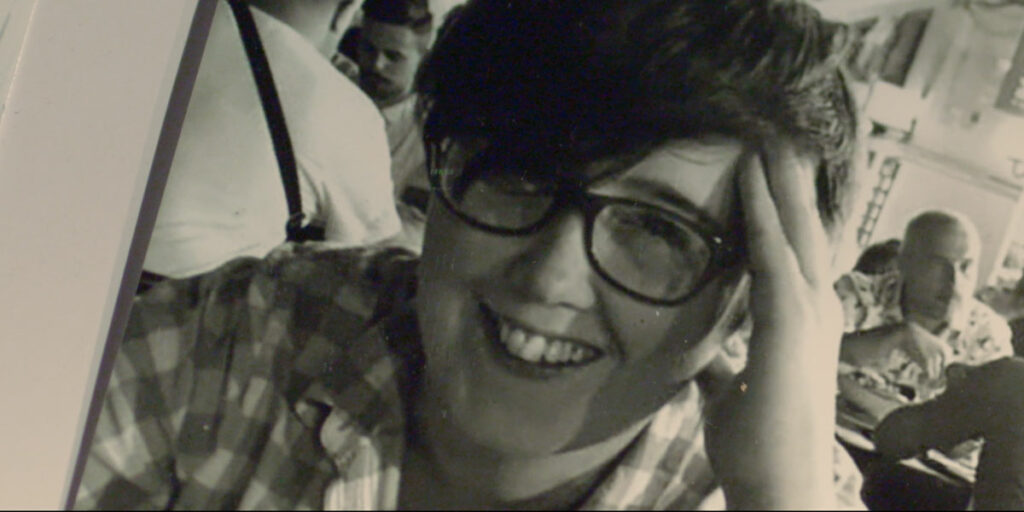Part eulogy and part call for justice, Alison Millar’s Lyra lets the subject tell her own story, highlighting the injustices of her unanswered death and the ripple it still carries.
On the 10th of April 1998, the Good Friday Agreement was signed. It signified an apparent end to the Troubles in Northern Ireland, and symbolised the hope for a more peaceful and prosperous future. On the 18th of April, 2019, investigative journalist Lyra McKee became the 160th victim of conflict-related violence in those intervening 21 years. Alison Millar’s documentary Lyra tells her story, and is in part a poignant eulogy and in part a searing call for justice.
Lyra grew up working-class in the Republican community of Ardoyne, Belfast, during the early 1990s. Her childhood involved being extra careful when walking to school, regular occurrences of suspect devices left out on the road, and navigating streets lined with burned out cars. And it was a childhood shared by many of the ‘Ceasefire Babies’, those whose future would be markedly different from the generations before as Northern Ireland entered into a fragile era of ‘peace’.
Having been a keen writer since her early years, she had a passion for reporting on the stories that involved difficult questions. She won the Sky News ‘Young Journalist of the Year’ award in 2016 for a powerful piece on the epidemic of suicides in Northern Ireland, sparking a passion for telling important stories, on rooting out injustices and using her voice to speak on behalf of those who did not have one.

Millar, a friend and creative collaborator of Lyra’s, allows her the chance to literally tell her own story here, utilising audio and video recordings to amplify Lyra’s own words. The film is framed extremely personally, showcasing her dedication, passion and talent for telling impactful stories. But her death was not in search of some searing evidence or a result of probing too far, it was simply a case of her being in the wrong place at the wrong time.
As a disturbance in the Creggan area of Derry turned into a riot, with petrol bombs and a simmering crowd of people, a dissident Republican opened fire and a bullet hit Lyra, who’d been observing with a keen journalistic eye after a night out with her partner. Her death sent shockwaves around the world, bringing the spotlight once again on a country that had been in its glare for the same reason too many times before. It was a tragic circumstance that is, equally as tragically, not uncommon.
Lyra described Northern Ireland itself as being a “beautiful tragedy, strangled by the chains of its past and its present”. Millar uses quotes like this really effectively throughout the film, either as text on screen or through voiceover, emphasising Lyra’s writing talents and her keen understanding of people, culture and the shadows the Troubles still cast on Northern Ireland. And she really efficiently uses camera footage – without anything explicitly showing Lyra or her injuries – to paint a truly harrowing picture of the night in question without bogging the film down in the ins and outs of what transpired. Because the purpose of the film is to remember Lyra and call out the lack of consequence, and Millar is very keen to stress the point that this may have been accidental, but there must still be accountability. The circumstances of that night invited violence and justice should rightfully be served.
The film ends frustratingly but poignantly. The impact Lyra had on those around her is clear, as they give interviews expressing how dedicated, friendly and passionate she was, and it’s heart-breaking watching them mourn her. But it’s also frustrating to be told that, although arrests have been made, there have been no trials nor definitive answers. A man has been sentenced for possessing the firearm, but no-one for pulling the trigger. Documentaries are always made with an inherent bias, and while Millar’s personal connection to Lyra certainly sways the film in a certain direction, it’s hard to watch the film and not be disheartened by the lack of closure for Lyra’s family. The film isn’t trying to persuade you to care about Lyra; it expects you to do so from the outset, and be as rightfully angry by the end as her family are. She deserves to be remembered, and she also deserves justice.
Lyra is a film thoughtfully crafted to emphasise how senseless acts of violence still leave voids in Northern Irish families, even during a supposed era of ‘peace’. Millar’s film beautifully captures Lyra’s spirit and gives Lyra the chance to, essentially, give her own eulogy. And it’s a very effective one, at that.
Lyra will be released in UK cinemas on 4th November, 2022.

